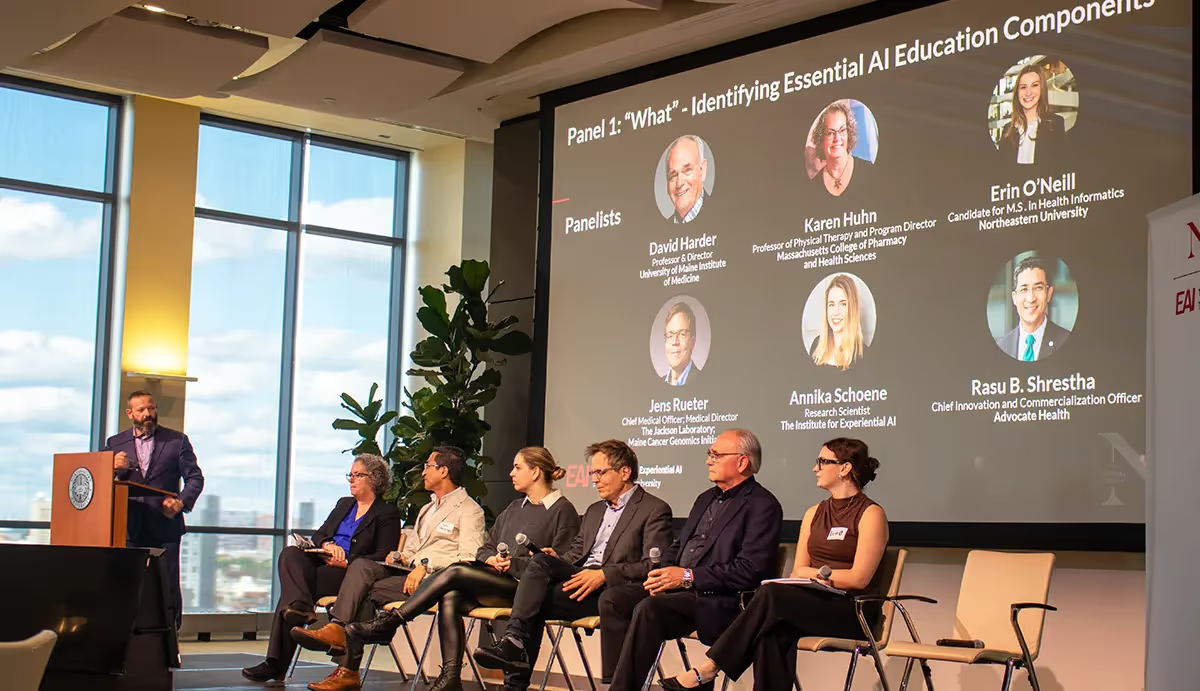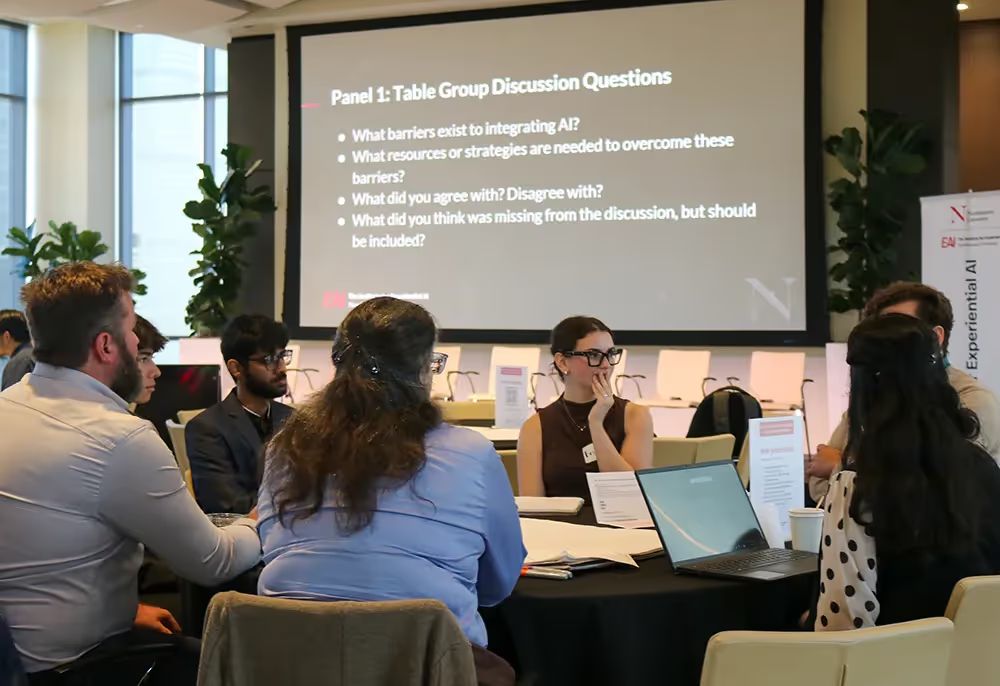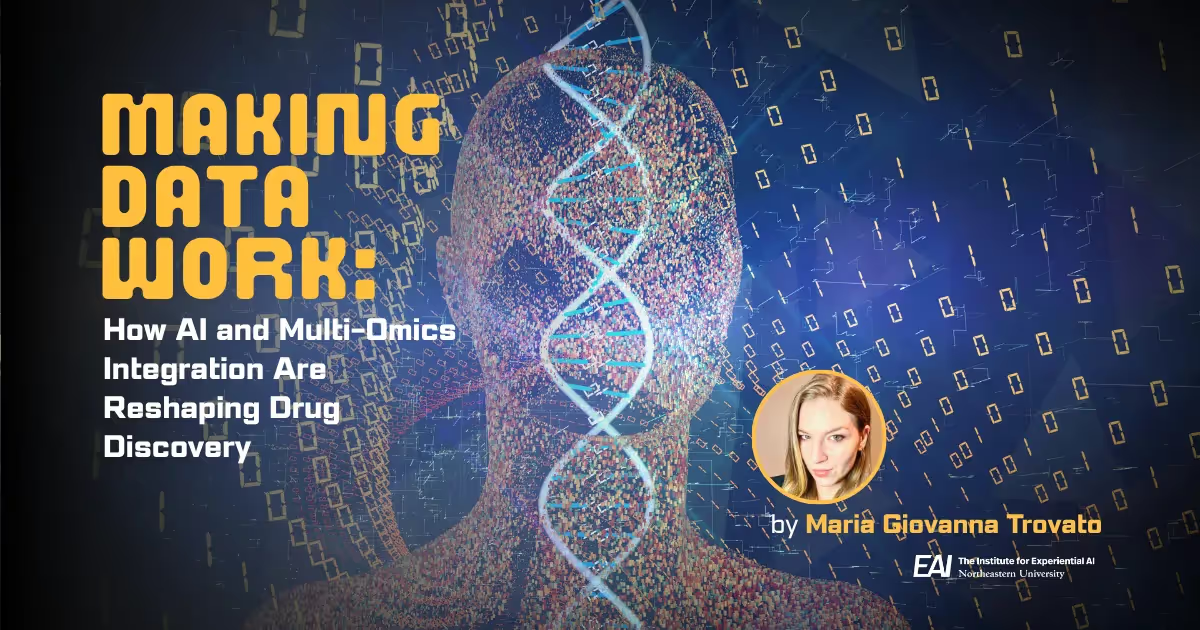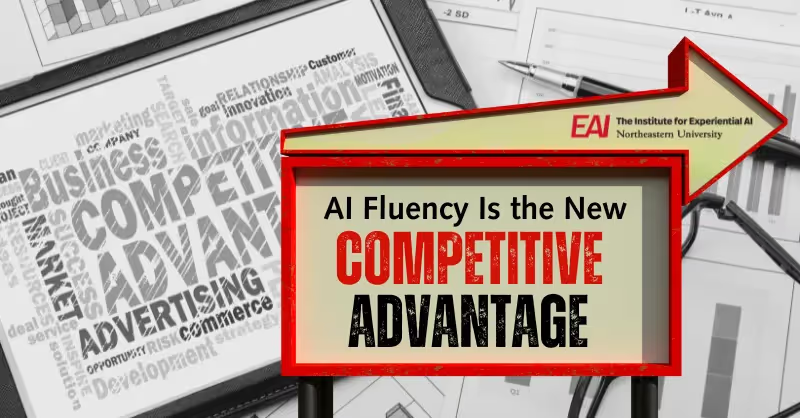The Future of AI in Health & Life Sciences Education: Preparing the Next Generation

As artificial intelligence drives new efficiencies and breakthroughs in healthcare, the question of how to prepare the next generation of health practitioners has never been more urgent. Such was the framing of a recent workshop hosted by the Institute for Experiential AI.
The Future of AI in Health & Life Sciences Education gathered experts from leading healthcare organizations, research centers, technology firms, and universities to explore strategies for teaching and upskilling both with and for AI in a rapidly changing environment.
"What an exciting time for the future healthcare and life sciences professional," said Gene Tunik, director of AI + Health at the Institute for Experiential AI. "Practitioners will be able to leverage technology and data to see the entirety of the patient before them like never before. Developing AI literacies in the health and life sciences will be core to that future."
The day was divided between panel discussions, breakout brainstorming sessions, and presentations on lessons learned. The first panel discussed what AI skills the future medical and life science professional will need.
Some panelists noted that students are already using AI, so educators should make it a priority to educate them on its strengths and shortcomings. Others, particularly participants from medical schools, struggled to see a way to incorporate AI literacy into their packed curriculum. All agreed some basic educational programming could go a long way.
.avif)
“There are certain elements that are must-haves in terms of AI literacy, such as prompt engineering, understanding the limits of AI, and the bias of algorithms,” Tunik said.
The second panel explored ways to deliver AI skills through impactful teaching and programs.

"For the professionals in the workforce today, how do they gain AI literacy — not to do linear algebra — but to make smart decisions for themselves and their organizations about implementation and partnerships?" asked Sam Scarpino, director of AI + Life Sciences at the Institute for Experiential AI.
But there are bottlenecks. Participants cited time, access to AI experts, and understanding of clinical settings as significant hurdles. They also offered advice, suggesting that the best way to equip students and employees with AI skills is to have them “learn by doing,” experimenting with tools like ChatGPT in non-professional settings. They also said it helps to focus on the use case rather than the technology itself.
Attendees said the event was a great way to learn from technologists, educators, and clinicians about how to equip the workforce with AI skills.
"This kind of cross-collaboration is where all the great ideas come from," said Lumilogics CEO Greg Hall, whose company develops AI solutions for the medical industry.
The workshop came a day before our institute’s flagship The State of AI in Precision Health conference, which brought hundreds of experts to Northeastern University to discuss some of the key challenges in using AI to drive advances in health and the life sciences.
Events are just one way the Institute for Experiential AI works at the intersection of academia and industry to build AI solutions to real business problems. Learn more about how we help our corporate partners apply AI in their businesses.


.avif)

